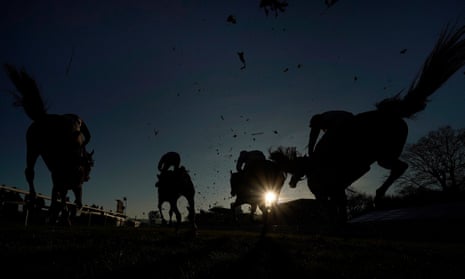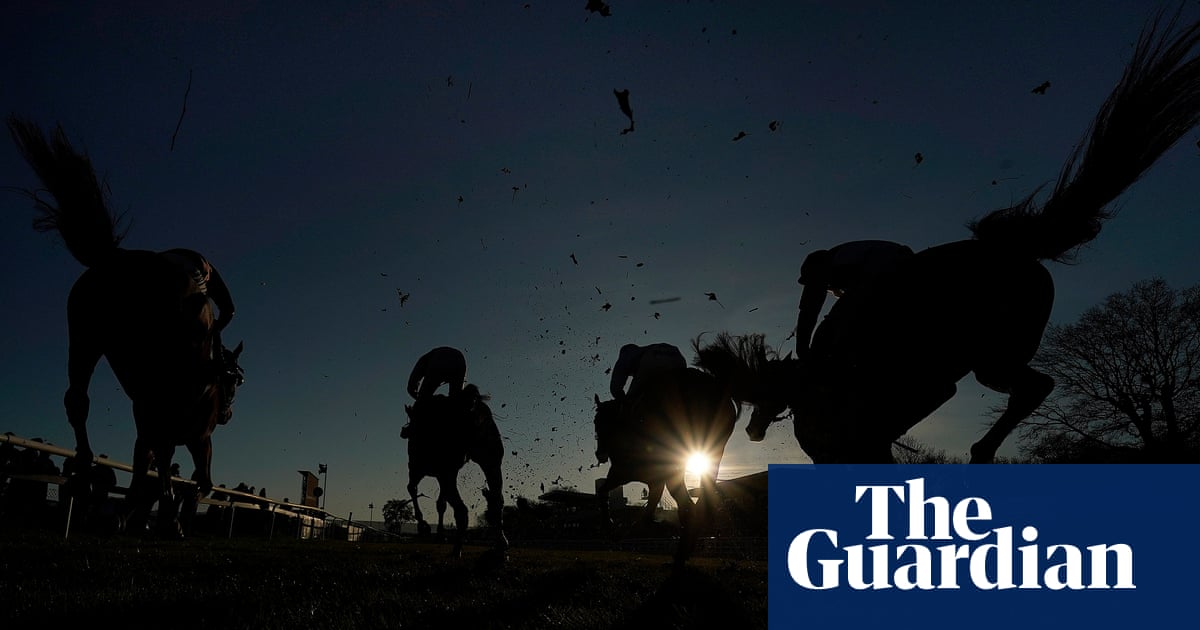
Making sense of racing’s ‘£3bn black hole’ and affordability checks row
Accusations have been thrown by both sides in betting dispute but there may be hope for racing amid the noise
The increasingly frenzied cycle of claim and counterclaim over the impact of “affordability checks” on punters on the sport’s revenue stream from betting moved through several gears at once last week, with “out of control”, “unaccountable” and “thorough misunderstanding” among the accusations being thrown in one direction or the other.
It all kicked off when a wide range of racing’s stakeholder groups, including the Racecourse Association (RCA), the Racehorse Owners Association (ROA) and the National Trainers Federation (NTF) gave their support to a statement issued by Martin Cruddace, chief executive of the racecourse operator Arena Racing Company (Arc), on Wednesday.
The statement suggested the Gambling Commission, which regulates all gambling activity in the UK, “increasingly appears to be unaccountable and out of control”, and also that “every racing jurisdiction across the world, none of which has the concept of affordability, is looking at the UK perplexed, wondering how our government can oversee such a decline in a sport which transcends and brings so much joy to every part of society, alongside billions to our economy.”
Cruddace’s statement, intended as a precursor to a direct appeal to the government to intervene on racing’s behalf, also effectively blamed the commission for what has been described as a “£3bn black hole” in online betting turnover on racing between March 2022 and March 2024. The claim derives from the latest set of industry statistics, issued by the regulator on 28 November, which show a drop in online turnover on racing from £10bn to £8.37bn, with an adjustment for inflation to give “real terms” figure of around £3bn.
Andrew Rhodes, the commission’s chief executive, responded in a letter to the Racing Post the next day, suggesting that Cruddace’s complaints were based on “a thorough misunderstanding of what has been happening and what we’re proposing”. Rhodes also disputed the use of the term “affordability checks”, insisting “there are no current affordability checks in force through regulation and we are not proposing so-called affordability checks. Instead, we are proposing proportionate checks to support the most financially vulnerable customers.”
So, is there a signal amid all this noise, and is there any hope for racing to cling to amid the seemingly unrelenting gloom? The answer to both questions seems to me to be … maybe.
Quick Guide
Dettori named amid legal wrangle over ‘tax avoidance scheme’
Show
Frankie Dettori has been involved in a legal battle with HMRC over his anonymity, after using a “tax avoidance scheme”, it can now be reported.
The jockey can be named after losing a challenge over his anonymity in proceedings at a specialist tax tribunal, after HMRC and the media said he should be identified.
Dettori said on Monday that he had been told the structure he used was approved by HMRC, adding that new advisers “are working hard to unravel the mess that I have been put in”.
After the lifting of his anonymity on Monday, the Italian said in a statement: “A few years ago I employed the services of professional specialist tax advisers to look after mine and my family’s financial affairs. A structure was created and I was told that it had been approved by HMRC.
“Years later HMRC is now challenging that structure. My former advisers have since been dismissed. My new advisers and management team are working hard to unravel the mess that I have been put in. They are also working closely with HMRC to resolve the matter as swiftly as possible.”
In December 2022 Dettori announced he would bring the curtain down on his glittering riding career at the end of the following year. However, 10 months later he reversed his decision, instead opting to relocate to America. PA Media
One of several points that has become increasingly lost over the last couple of years, as both racing and the commission have dug in over proposals to conduct financial checks on potential problem gamblers, is – as Rhodes points out – the checks as proposed in the last government’s white paper on gambling regulation have yet to move beyond an initial pilot phase.
At the same time, though, punters have been complaining about “affordability checks” – including intrusive demands for bank statements and other evidence of income in order to continue betting – for a couple of years now, prompting Cruddace and many others to fairly suggest that many ordinary punters are being turned away from the sport.
It feels as though they can’t all be right – but to some extent, they can, because unless or until the commission’s standardised regime comes into force, it is the gambling firms themselves that decide how, when and where to implement checks. Each firm will have different criteria for checks but realistically, higher-staking but low-margin racing customers are going to be an obvious place to start.
Another interesting point in the industry statistics is that while racing turnover has indeed fallen dramatically, the gross gambling yield (GGY) from racing over the same period has actually gone up by 5%, from £746m to £790m. Lower turnover, in other words, but higher margins – and since the recycling of winnings is a key factor in overall turnover, the higher margins – ie slightly shorter prices for punters – must surely account for at least some of the decline in turnover.
after newsletter promotion
The fact the bookies are making more money on lower turnover accounts for the relatively healthy state of the off-course Levy, which is based on gross profits, and probably also for the fact that the big racecourse groups – whose media rights deals are based on turnover – are leading the charge on “affordability”.
My own view has long been that checks to identify potential problem gamblers based entirely on net deposits over a set period of time may be appropriate for players of high-risk, fixed-margin gaming activities such as online slots, but will inevitably be entirely inappropriate for betting in general, and bets on racing above all, due to the very different patterns of staking, profit and loss.
Quick Guide
Greg Wood’s Tuesday tips
Show
Uttoxeter: 12.12 Accidental Legend 12.42 Oh My Johnny 1.12 Koukeo 1.42 Jagwar 2.12 Sound And Fury 2.42 Strictly Tango 3.12 Cherry Brave.
Fontwell: 1.00 Malinka 1.30 Getaway Drumlee 2.00 Arctic Saint 2.30 Captain Claude 3.00 Hollygrove Cha Cha 3.30 Diesel Line.
Southwell: 4.30 Mr Ubiquitous 5.00 Enola Grey (nb) 5.30 Have You A Minute (nap) 6.00 Bedford Flyer 6.30 Swinging London 7.00 Joseph 7.30 Hidden Secret 8.00 Wilde And Dandy 8.30 Kats Bob.
The commission, though, steadfastly refuses to distinguish between betting and gaming, and also insists that, for the overwhelming majority of punters, a check will be entirely frictionless, to the extent that customers will not know it is happening.
The best hope for racing, perhaps, is that a single set of rules for all gambling operators will work as intended, and that racing punters deterred by the current, intrusive and operator-led checks will slowly return to the sport. The regulator will absolutely need to be held to account on its promises, but effectively accusing the commission of incompetence is, realistically, unlikely to make much difference.
